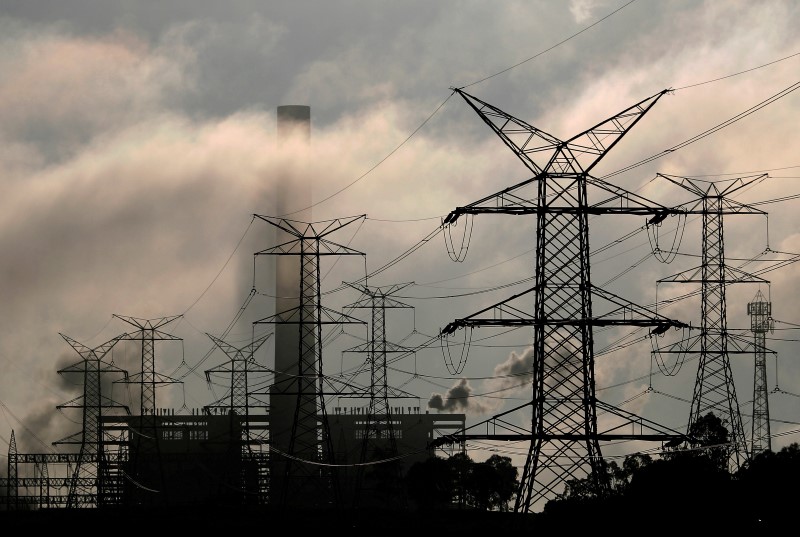By Jonathan Barrett and Sue-Lin Wong
SYDNEY/BEIJING (Reuters) - Australia's decision to block the A$10 billion (5.91 billion pounds) sale of the country's biggest energy grid to Chinese bidders was a protectionist move that would negatively affect investment in the country, China's Ministry of Commerce said on Wednesday.
Australian Treasurer Scott Morrison said last week that preferred bidders State Grid Corp of China and Hong Kong's Cheung Kong Infrastructure Holdings would be prevented from buying electricity network company Ausgrid, citing unspecified national security concerns.
"This kind of decision is protectionist and seriously impacts the willingness of Chinese companies to invest in Australia," China Commerce Ministry spokesman Shen Danyang said at a regular news briefing in Beijing.
"China hopes Australia will create a fairer and more transparent environment for Chinese investment."
The decision was the second time this year Canberra has rejected bids for major Australian assets by Chinese interests, the biggest source of proposed foreign investment in Australia, according to an April report from the Foreign Investment Review Board.
It previously knocked back an offer by a China-led consortium to buy the country's largest agricultural land owner, cattle company Kidman & Co.
UNDER SCRUTINY
China's offshore ambitions have come under increasing scrutiny this year by governments in Europe and the United States.
Following a surprise move by new British Prime Minister Theresa May to review the building of a nuclear plant part funded by China, Beijing questioned whether Chinese money was still welcome.
Australian Prime Minister Malcolm Turnbull used a major speech on Wednesday to criticise the rising tide of protectionism within parliament, despite his government being responsible for the rejection of the Ausgrid and Kidman bids.
The speech warned against giving in to the growing protectionist mood reflected in the new parliament, which he said could reverse gains made by the country since it liberalised its economy two decades ago.
Turnbull's conservative Liberal-National coalition will at times require support in the new parliament from a bloc of foreign investment critics led by the Far-right One Nation party to pass legislation.
FOREIGN INVESTMENT
Proceeds from the sale of state-owned assets are designed to be plowed back into the economy through job-creating infrastructure projects, including public transport networks.
"These are the transactions Australia needs if it is going to get out of the low growth, low productivity scenarios," said Brendan Lyon, chief executive of industry lobby group Infrastructure Partnerships Australia.
Chinese investment in Australia surpassed $11 billion in 2015, according to a report by accounting firm KPMG and the University of Sydney.
Former senior defence department official Peter Jennings said the trade relationship put Australia in a difficult strategic position.
"We've never had a greater dependency with any country," said Jennings, a director at the Australian Strategic Policy Institute.
"The risk that creates for us is if Beijing wants to adopt politically coercive policies, it's in a fairly strong position to do so with us because of that level of trade dependence."
Last year, Landbridge Group, owned by Chinese billionaire Ye Cheng, won a long-term lease to operate Darwin's port, in the north of Australia, in a deal worth A$506 million.
Turnbull defended the deal following reports that U.S. President Barack Obama had expressed anger at the Australian Prime Minister for not having informed him earlier.
U.S. Ambassador to Australia John Berry told Reuters national security must be taken into account when considering foreign direct investment in infrastructure and sensitive areas.

"The U.S. fully respects the process and decisions on foreign investment made by the Australian government, even when it affects U.S. companies," Berry said in a statement.